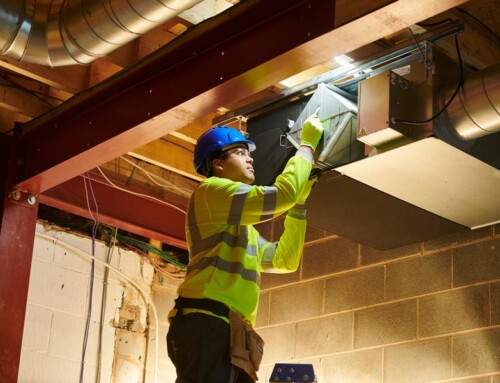Brushing Up on Your Water Vocabulary

With last week’s observation of Earth Day, this is a good time for cleaning professionals to become more focused on water, which may be in increasingly short supply for years to come.
Water is becoming a key concern in all aspects of building operations, from the actual construction to cleaning and maintenance of facilities. Water conservation will be reflected in the upcoming updates to the U.S. Green Building Council’s Leadership in Energy and Environmental Design for Existing Buildings (LEED-EB) rating criteria, which are expected to be released later this year. The new rating criteria are expected to put a much greater emphasis on water efficiency and conservation for LEED-EB certification.
This article will examine some basic terms used to discuss water, water conservation, and water recycling in order for us all to have a clearer understanding.
Dry, Extreme, Severe: Which is Which?
When discussing water shortages and droughts, certain terms are used to express a threat classification. However, many of us are unsure what each term or phrase signifies. For instance:
- Is an abnormally dry area the same as one experiencing moderate drought conditions?
- Is a severe drought worse than an extreme drought?
- Is an exceptional drought worse than a severe or extreme drought?
According to the National Drought Mitigation Center in Lincoln, NE, the above terms reference different intensity levels that describe water shortages and droughts. In order of strength, from weakest to most severe, the five levels of drought intensity are:
- Abnormally dry
- Moderate drought conditions
- Severe drought conditions
- Extreme drought conditions
- Exceptional drought conditions.
Terms You Should Know
Now that we have clarified droughts and water shortages, some other water-related terms cleaning professionals should be aware of include:
- Commercial water use: This describes water used for commercial facilities, such as health care locations, stores, and office buildings.
- Depletion: The loss of water from reservoirs at a rate faster than it is being recharged.
- Domestic water use: Water used for household purposes.
- Drought: An extended period of time with below-average precipitation.
- Effluent water: Untreated water.
- Freshwater: Low-salt water, containing less than 0.5 parts per thousand dissolved salts.
- Groundwater: Water below land surface.
- Per capita water use: Amount of water used per person in a standard amount of time.
- Potable water: Water that is suitable for drinking.
- Reclaimed water: Water that is treated and can be used for irrigation.
- Surface water: Water on the surface, such as in lakes and streams.
- Treated water: Water that has been filtered and/or disinfected.
- Wastewater: Water that has been used in homes or commercial facilities that is not for reuse unless it has been treated.
Most of these terms have been used for decades. However, newer water terminology has been introduced in the past 10 to 15 years to address what is now known as water reuse and recycling. Many of these terms have evolved as a result of Earth Day’s goals and reflect the emergence of water conservation and efficiency. These newer terms and phrases include:
- Graywater: Reusable wastewater derived from residential, commercial, and industrial facilities and is typically used for landscape irrigation, not human consumption.
- Planned water recycling: Projects developed with the goal of beneficially reusing a recycled water supply (e.g., gathering rainwater for later irrigation or using equipment engineered to recycle water during operation).
- Water recycling: The reuse of treated wastewater for safe and beneficial purposes, such as agricultural and landscape irrigation, toilet flushing, and industrial applications.
- Water reuse, reusable, reclamation: Terms often synonymous with water recycling, referring to the use of treated and, in some cases, untreated water that can be reused safely for other purposes.
In order to take action and make educated decisions, we must establish basic terms to discuss and understand any issue. This is true in all endeavors and true with water as well. Now, hopefully, you will have a better understanding of water so that we can all do our part and use it more responsibly.
















